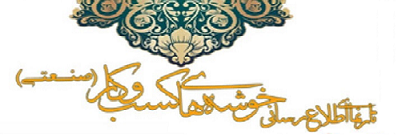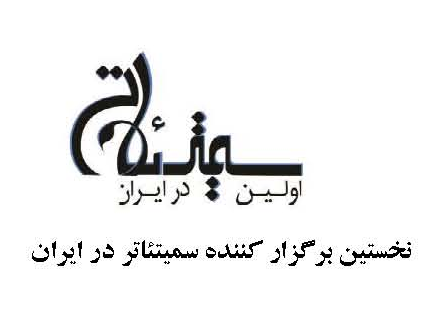گزارش تحلیلی -صنعت ارتباطات از راه دور در ایران -سه ماهه اول 2010
BMI’s Q1 2010 update on the Iranian telecommunications market contains newly revised and extended forecasts for the country’s fixed-line, broadband and mobile telephony markets. Our forecasts, which extend to the end of 2014, incorporate second and third quarter data published by the country’s secondlargest mobile operator, MTN Irancell, and the country’s state-owned fixed-line monopoly,Telecommunications Company of Iran (TCI).
The past few months have seen two important developments in the Iranian telecommunications market: firstly, the decision to reissue the country’s third mobile concession and, secondly, the part-privatisation of TCI. It was announced in October 2009 that Iran’s third mobile concession had been awarded to Iranian firm Tamin Telecom. Tamin was originally awarded the concession as part of the consortium with UAE-based Etisalat in December 2008. It is understood that Tamin plans to launch Iran’s third mobile network sometime in 2010. The company has also revealed that it is looking for an experienced international mobile operator to partner with as it expands its business in Iran.
The second important development in the Iranian telecommunications market concerned the partprivatisation of TCI and the controversy which ensued in its aftermath. In September, it was revealed that a 50% plus one share stake had been purchased in TCI by local consortium, Etemad Mobin. A few weeks after the announcement, it was reported that Iran’s General Inspections Organisation (GIO) had begun an investigation into the relationship between Etemad-e-Mobin and the Iranian Revolutionary Guard. In the event of the acquisition of the TCI stake being approved, it is thought that TCI would
effectively become controlled by Iran's military.
Our latest assessment of Iran’s mobile market shows that weak growth persisted in the third quarter of the year. Our new forecast reflects our expectation of much weaker mobile subscriber growth over the next five years. Meanwhile, the latest figures published by TCI suggest that demand for fixed lines has started to decline. The main development which is thought to be contributing to the erosion of fixed-line demand in the country appears to be an increase in the level of mobile usage. TCI’s figures also suggest that 2009 saw a significant slowdown in the rate of internet user growth. By the end of September, there were said to be 23mn internet users in the country. Although TCI previously expressed plans to expand its internet user base to 30mn by the end of 2009, the operator’s latest figures made this target look unachievable.
This quarter sees the introduction of a new set of a new set of Business Environment Rankings (BER) for the Middle East. Following our decision to reclassify Turkey as an Emerging Europe market, Turkey is no longer covered by our Business Environment Rankings for the Middle East. We have also added several North African countries to our Business Environment Rankings for the Middle East to form a combined Middle East and North Africa (MENA) table. Iran continues to sits at the bottom of our newly expanded set of Business Environment Rankings.
The past few months have seen two important developments in the Iranian telecommunications market: firstly, the decision to reissue the country’s third mobile concession and, secondly, the part-privatisation of TCI. It was announced in October 2009 that Iran’s third mobile concession had been awarded to Iranian firm Tamin Telecom. Tamin was originally awarded the concession as part of the consortium with UAE-based Etisalat in December 2008. It is understood that Tamin plans to launch Iran’s third mobile network sometime in 2010. The company has also revealed that it is looking for an experienced international mobile operator to partner with as it expands its business in Iran.
The second important development in the Iranian telecommunications market concerned the partprivatisation of TCI and the controversy which ensued in its aftermath. In September, it was revealed that a 50% plus one share stake had been purchased in TCI by local consortium, Etemad Mobin. A few weeks after the announcement, it was reported that Iran’s General Inspections Organisation (GIO) had begun an investigation into the relationship between Etemad-e-Mobin and the Iranian Revolutionary Guard. In the event of the acquisition of the TCI stake being approved, it is thought that TCI would
effectively become controlled by Iran's military.
Our latest assessment of Iran’s mobile market shows that weak growth persisted in the third quarter of the year. Our new forecast reflects our expectation of much weaker mobile subscriber growth over the next five years. Meanwhile, the latest figures published by TCI suggest that demand for fixed lines has started to decline. The main development which is thought to be contributing to the erosion of fixed-line demand in the country appears to be an increase in the level of mobile usage. TCI’s figures also suggest that 2009 saw a significant slowdown in the rate of internet user growth. By the end of September, there were said to be 23mn internet users in the country. Although TCI previously expressed plans to expand its internet user base to 30mn by the end of 2009, the operator’s latest figures made this target look unachievable.
This quarter sees the introduction of a new set of a new set of Business Environment Rankings (BER) for the Middle East. Following our decision to reclassify Turkey as an Emerging Europe market, Turkey is no longer covered by our Business Environment Rankings for the Middle East. We have also added several North African countries to our Business Environment Rankings for the Middle East to form a combined Middle East and North Africa (MENA) table. Iran continues to sits at the bottom of our newly expanded set of Business Environment Rankings.
مطالب مرتبط


